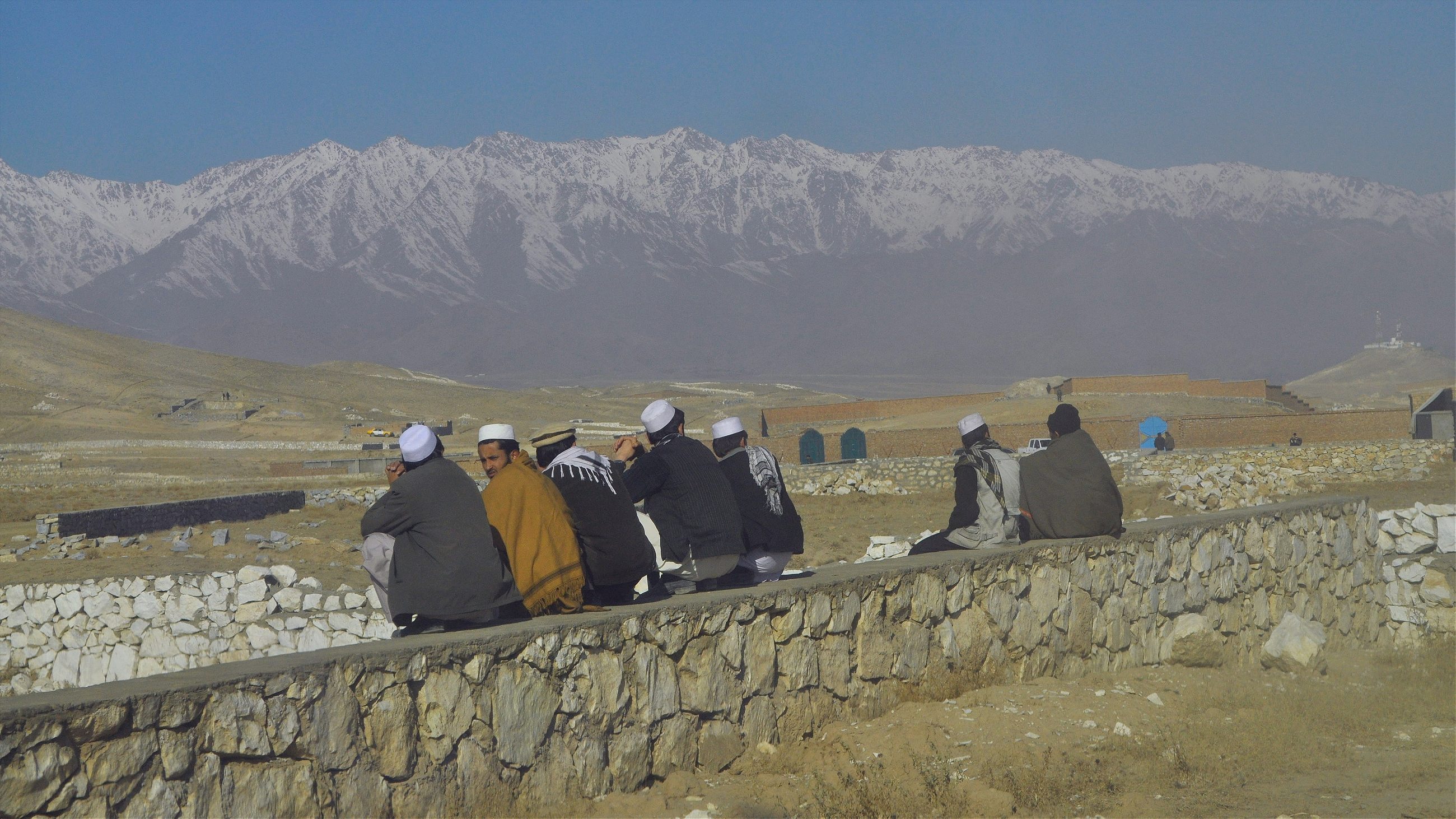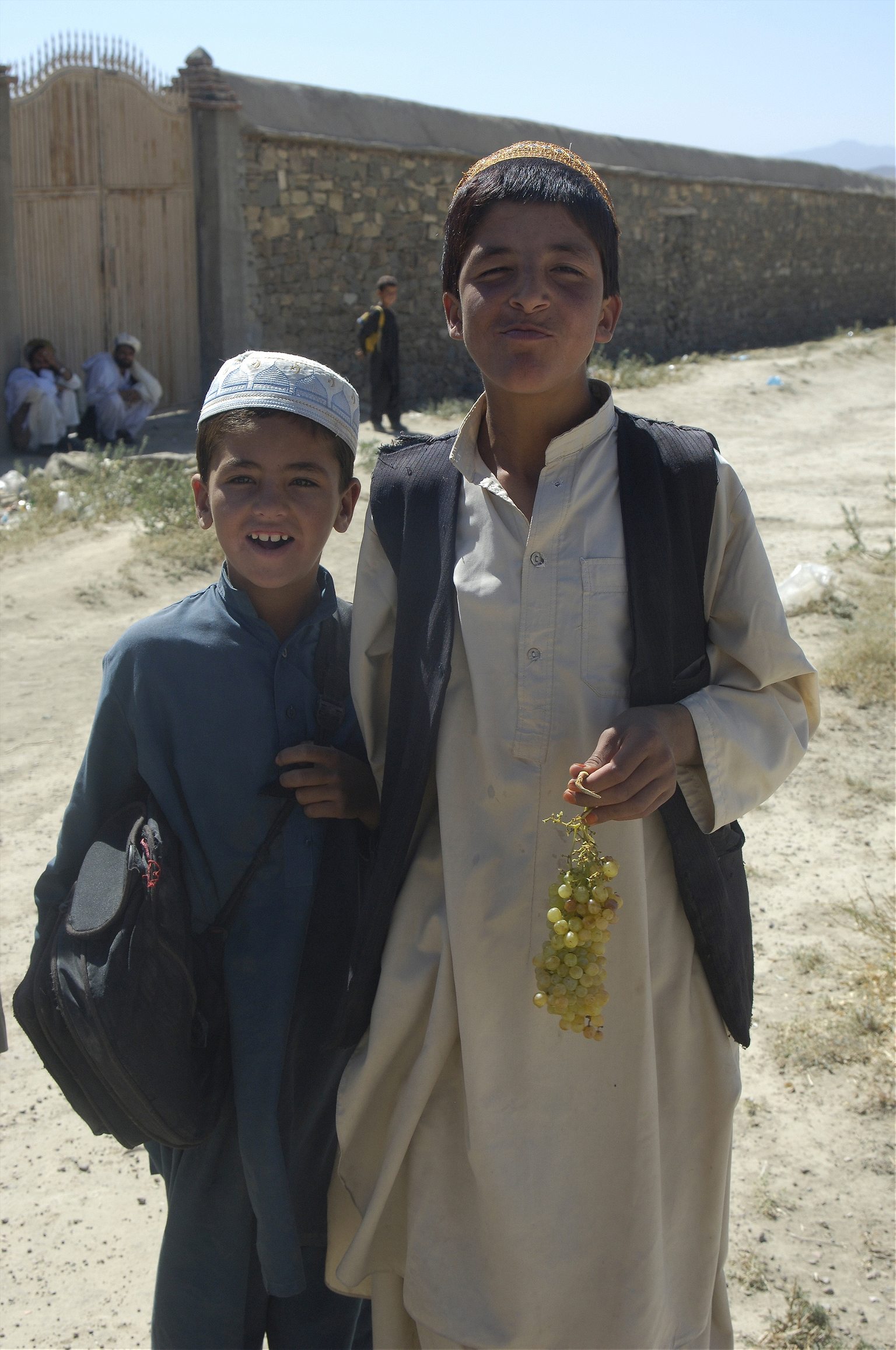Afghans risk lashes and jail time to continue a tradition that offers a welcome escape from harsh realities.
Kabul, AFGHANISTAN—
My taxi driver white-knuckled his way down a boulevard in central Kabul toward a checkpoint up ahead. He was stressed, and I was hoping that his obvious anxiety wouldn’t prompt a search as we passed through. The tires clunked over gaping potholes and my driver steered erratically down the street. It wasn’t just the perpetual military presence and general tension of life in Kabul that had him on edge; he also knew I was smuggling a couple bottles of booze.
It was 2012, and I was in Afghanistan on a video assignment for a few months during the bleak, windswept winter. It was my first time in a war zone in a strictly Islamic republic. The NATO-led International Security Assistance Force had thinned out, but the American military presence was still pervasive. This hardly lent a feeling of safety—the opposite, actually. A few factions of Taliban loyalists regularly fired mortars from the surrounding mountains, aiming to rattle Kabul, but with little success. They did, however, succeed with occasional suicide and car bombings in the Westerner-friendly commercial centers. But more often, the casualties of these attacks were Afghan civilians.
Because I was the project’s producer and therefore in charge of taking care of my crew, I had to supply my fellow foreigners with certain creature comforts that I felt were necessary in such a place—decent long-term housing in our own walled compound, a live-in cooking crew for three hot meals each day, and, of course, libations. Eight of us had traveled to Kabul from the U.S., and we had unanimously agreed our endeavor would be far more successful without a security detail, relying instead on the help of our local Afghan fixers and other members of the community. In those conditions, comfort for my crew was a top priority.
The driver and I pulled over at the checkpoint. I was unsure of how laws were enforced here, but I had been told by other journalists that Westerners were legally allowed to bring two bottles, or two liters, of alcohol into Afghanistan.
I looked up to find multiple assault rifles pointed at my head and chest
The driver was one who specifically hauls Westerners around Kabul. He had picked me up from the Italian Embassy earlier that evening, and I was carrying a paper bag concealing two bottles of exceptional Barolo. I also had whiskey on my breath from a quick session behind closed doors with the Italians. My travels have led me to one conclusion: Man will imbibe and escape immediate reality, no matter the cost or consequence. I hadn’t told the driver what was in the bag when he asked me at the pickup location. I simply replied, “It’s a gift for a friend.” But he knew my answer was bullshit, because of the alcohol on my breath and the obvious shape of the bag, and the clink of the bottles inside it.
Several armed Afghan National Security Force soldiers approached the vehicle. I sat tight, but the driver began skittishly speaking in Dari to one of them outside his window. I could only assume he was covering his ass and throwing me under the bus, and he had every right to. Two soldiers pulled me from the front passenger seat of the vehicle, and knowingly pulled the paper bag out from beneath the passenger seat. I was tossed into a ditch that ran along the street where a sidewalk could’ve been. After the first few moments of being roughed up and yelled at in a language I didn’t really understand, I looked up to find multiple assault rifles pointed at my head and chest. I pictured spending months if not years in an Afghan jail, all for smuggling two bottles of Barolo.
After a tense few minutes, the company commander had the soldiers ease up on me, as he lectured me about alcohol and the laws against it in Afghanistan. He threatened me with harsh punishment should I be caught doing this again. He then turned and walked away. The soldiers picked me up and put me back in the passenger seat with my booze, instructed the driver to take me back to my compound, and off we went. I was confounded. The drive back was awkward, and I could feel the driver silently damning me.
Do you want to try Afghan drink?
Once back at the compound, shaken by the prospects of Afghan prison, my colleagues enjoyed the wine as I regaled them with the tale of what happened en route. We had two fixers at the compound with us that evening: Aziz, who spoke flawless English; and Farhad, who spoke broken English. (Names have been changed to protect the fixers’ identities.) They worked in tandem, securing our filming locations and negotiating deals with the local government, federal government, and property owners.
At the end of the evening, with the two bottles of wine dusted, and the few scattered cans of Tuborg kaput, Farhad and Aziz approached me before heading out for the night. Aziz translated for Farhad: “Do you want to try Afghan drink?”
“What? What’s ‘Afghan drink?’”
“A spirit—made from the green raisins you have been eating.”
“Absolutely!”
“Meet me at the Flower Street Cafe tomorrow at 12 o’clock, and we will make an arrangement,” Farhad said.
Apparently I hadn’t learned my lesson after the dust-up at the checkpoint. Earlier in the evening, Aziz had made me aware that anyone—Westerner or Afghan—caught smuggling or consuming large amounts of alcohol could face penalties in accordance with Sharia law: considerable fines, jail time, skin-splitting lashes, and deportation. The penalties differ per person, per offense.
The following morning, I ambled down to the Flower Street Café for some Kabuli eggs and Persian coffee. I got there early enough so I could bail before Farhad and Aziz arrived if my nerves got the best of me. Farhad showed up early, and he was alone. Aziz wouldn’t be coming because he was working, Farhad told me in his broken English. Wonderful. I followed him out to the street where a van and driver were waiting.
Thirty minutes into the ride, winding through trenched dirt roads and old, fringe neighborhoods whose residents have probably never seen an American civilian, Farhad said we were close. We were in rural Kabul Province, on the outskirts of the city, near the base of the towering, snow-capped Hindu Kush.

We pulled up to a modest single-level compound, surrounded by the high wall and an iron gate. He signaled to me that I must leave my camera and bag in the van. Farhad told the driver to stay put. At the gate, Farhad spoke to someone on the other side. The gate opened, he grabbed my right wrist with a gentle tug, and with a smile said, “My home.”
On the other side of the gate was a man dressed in ragged traditional Panjshir clothing and holding a Kalashnikov. He gave us the traditional handshake followed by a hand over heart greeting. I found out later that this watchman was Farhad’s cousin. We walked around the main house to the back of the property. Tucked against the back wall of the compound was a clay hut with a timbered roof no bigger than an American two-car garage. Farhad gave a rhythmic rap on the shoddy door of the hut—what seemed like code—and we went inside.
Five men lounged inside the ramshackle, windowless structure. They went about their business without paying more than a few cursory glances in my direction. They spent their days manufacturing copious amounts of clandestine Afghan liquor. This was their illicit occupation.
Farhad briefly introduced me to all of them. They were family of Farhad—two brothers and three cousins. I shook hands and said hello, but our interaction was limited. Around the room were two large, crudely fashioned pot stills, much like what would have been found in Appalachia during Prohibition. One still was fired up and cooking. In a corner of the room were boxes of empty 12-ounce water bottles. In the other corner were large bags of the green raisins that Afghans commonly snack on throughout the day.
This was exceptional drink. And highly illegal
Near the entrance was a closed storage closet. Farhad opened it, and inside were several cases—I counted 14—stacked, full of water bottles refilled with a liquid that looked like Vinho Verde. Farhad pulled a bottle from a case and opened it, handing it to me with a proud smile.
I had a liberal sip, let it swirl in my mouth, and swallowed. A light, refreshing burn made its way down to my throat. The aftertaste was that of sweet green raisins with a slight tart acidity. This was better than the best grappa I’ve had in Calabria, and it was every bit as potent as the White Lightnin’ I tippled during my few years in the Volunteer State. This was exceptional drink. And highly illegal. The penalty for this kind of operation is at least 60 lashes, a lengthy jail sentence, and a fine steep enough to temporarily crush a man.
I handed Farhad the bottle, signaling to drink with me, and he did without hesitation. He took a heavy swig and handed it to one of his kin. We passed the bottle around until it was finished.
Farhad told me that they make the liquor—together, working in shifts nearly every day—for themselves, as gifts for friends and family, and to use for baksheesh—a Persian word for gratuity or bribe—with the property owners and government officials from whom he needs to procure site use and permissions for the journalists, media crews, and developers he works with. He also said they sell a few cases each week to Afghans and Westerners alike, though they prefer to give it to their friends and family. I asked him if the drink is popular. He said the tradition of making raisin wine or liquor has been around for centuries and even survived through Taliban rule. Even Afghan politicians are known to imbibe.

Farhad pulled two cases from the storage room and handed them to me. “For you and friends,” he said. I asked him how much. He insisted it was a gift with a smile and a pat on the back. We made our way back to the van, my head spinning from the midday moonshine.
As we were driving to my crew compound, back on the Corolla-packed, mean streets of the city proper, I was contemplating how to surprise the gang at the house with the gift from Farhad, when a large rock hit the back window and spider-webbed the glass. Both Farhad and I ducked in fear, but the driver just started cursing, continuing to drive at the same slow pace.
I looked up and out the back window after the initial adrenaline rush subsided, and found myself staring down the barrel of a mounted canon on a U.S. armored personnel carrier. One could only assume the gunner had thrown the rock. I displayed my open passport against the back window and furiously tried to make eye contact with the gunner behind the canon. Within seconds, the vehicle swung around to our left side, cannon still trained on us, and accelerated away.
I looked at Farhad, sharing in his confusion and discomfort. There was also what I could only perceive as grief in his eyes—a grief that had been a part of his life for most of his 30-something years. I’ve seen similar instances occur numerous times since entering Afghanistan, but to be on the receiving end of it was harrowing.
When we arrived back at my compound, I asked Farhad if he wanted to stay for a while for food and drink. He happily obliged.
